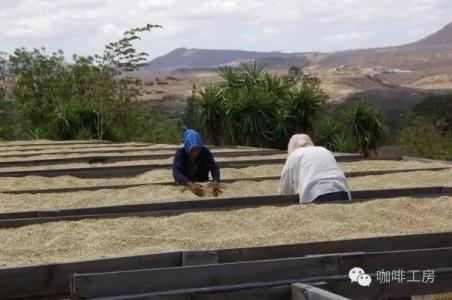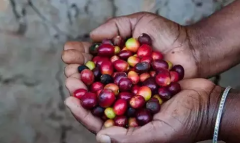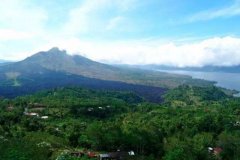Suggestions on hand-flushing parameters of Titicaca Fine Coffee beans in Lake Titicaca, Bolivia

For professional baristas, please follow the coffee workshop (Wechat official account cafe_style)
Bolivia with hands. 15g powder, medium grinding (small Fuji ghost tooth cutter 4 grinding), v60 filter cup, 88-89 degrees water temperature, 30g water injection for the first time, steaming for 27 seconds, water injection to 105g water cut off, wait for the amount of water in the powder bed to reach half and then water injection, slow water injection until 225g water, no water powder ratio at the end, 1:15, extraction time 2:00
Baking
Factory name: Dazhen Coffee Qianjie Cafe location: Guangzhou Baoqian Street 10 manufacturer contact Information: 38364473 ingredients Table: self-baking shelf life: 90 net content: 227g Packaging: raw and cooked coffee beans in bulk: whether coffee beans contain sugar: sugar-free origin: Bolivia roasting degree: moderate
Lake Titicaca Copacabana
Country: Bolivia
Altitude: 3812m
Producing area: Lake Titicaca
Baking degree: medium baking
Treatment: washing
Lake Titicaca, located on the Coaya Plateau on the border between Bolivia and Peru, is the highest and largest freshwater lake in South America, one of the highest large freshwater lakes in the world, the highest navigable lake in the world, and the third largest lake in South America (after Lake Maracaibo and Patus lagoon).
Variety: iron pickup
Producer: tapping Baigabana small farmers
Flavor: dried aromas of roasted nuts and almonds, orange and pomelo
South America is rich in coffee beans, and Bolivia is no exception. The unique tropical rain forest environment in some parts of Bolivia provides excellent natural conditions for the growth of organic coffee. The aroma of Bolivian coffee is rich and unique, both the aroma of ground beans and the aroma of coffee are obviously rich, similar to the mixture of flower and fruit aroma, impressive.
The advantage of Bolivian coffee lies in its high altitude and excellent varieties of coffee, where the traditional Tibica and a small amount of Kaddura are highly valued in the world market. In the past, coffee trees in Bolivia used to act as hedges and ornaments around the garden. Real commercial production began in the early 1950s. The coffee industry in Brazil was badly damaged by the great frost in 1957, while Bolivia (Bolivia) benefited and developed rapidly. Bolivian coffee is grown at an altitude of 180,000,670 meters above sea level, and the Arabian washed coffee beans are exported to Germany and Sweden, which are not the best in taste today and have a bitter taste.
Flavor: dry aromas of roasted nuts and almonds, supple fruit acidity of orange and white pomelo on the palate, sweet caramel on the whole, smooth texture of firm fruit milk, cleanliness and balance, and attractive herbal aromas.
Important Notice :
前街咖啡 FrontStreet Coffee has moved to new addredd:
FrontStreet Coffee Address: 315,Donghua East Road,GuangZhou
Tel:020 38364473
- Prev

Stories and allusions of sunburn Sidamo Shakiso G1 Valley Guji nectar boutique coffee beans
For professional baristas, please follow the coffee workshop (Wechat official account cafe_style) Shakisso, located in the southern part of Guji, Oromia, next to Sidama and Gedeo. There are many pits in this area, which were used to mine gold in the early days, so there are many potholes in this coffee growing area. This makes people in the coffee growing area
- Next

The story and story of Lake Titicaca in Bolivia tapping small farmers to wash iron and Pica boutique coffee beans.
Professional baristas Please pay attention to the Coffee Workshop (Wechat official account cafe_style) Bolivian coffee has the advantages of high altitude and excellent coffee varieties, where the traditional Tibica and a small amount of Kaddura are highly regarded on the world market. In the past, coffee trees in Bolivia used to act as hedges and ornaments around the garden. Real commercial production comes from
Related
- Detailed explanation of Jadeite planting Land in Panamanian Jadeite Manor introduction to the grading system of Jadeite competitive bidding, Red bid, Green bid and Rose Summer
- Story of Coffee planting in Brenka region of Costa Rica Stonehenge Manor anaerobic heavy honey treatment of flavor mouth
- What's on the barrel of Blue Mountain Coffee beans?
- Can American coffee also pull flowers? How to use hot American style to pull out a good-looking pattern?
- Can you make a cold extract with coffee beans? What is the right proportion for cold-extracted coffee formula?
- Indonesian PWN Gold Mandrine Coffee Origin Features Flavor How to Chong? Mandolin coffee is American.
- A brief introduction to the flavor characteristics of Brazilian yellow bourbon coffee beans
- What is the effect of different water quality on the flavor of cold-extracted coffee? What kind of water is best for brewing coffee?
- Why do you think of Rose Summer whenever you mention Panamanian coffee?
- Introduction to the characteristics of authentic blue mountain coffee bean producing areas? What is the CIB Coffee Authority in Jamaica?

